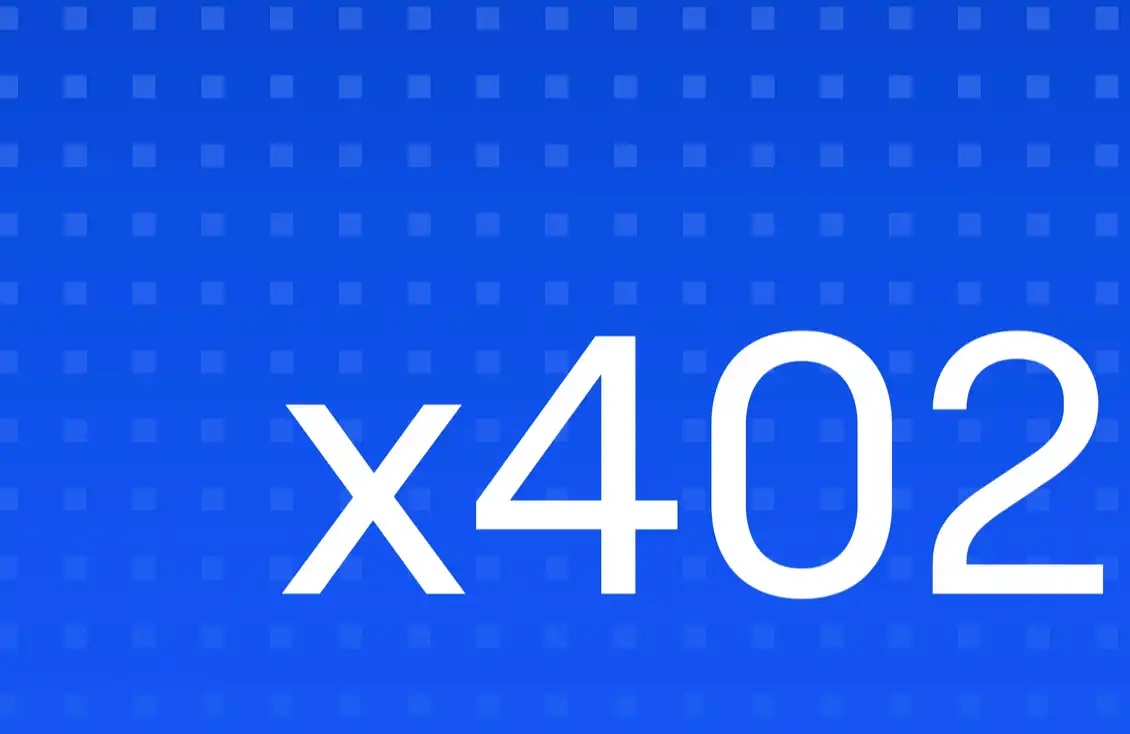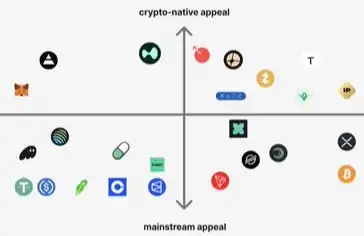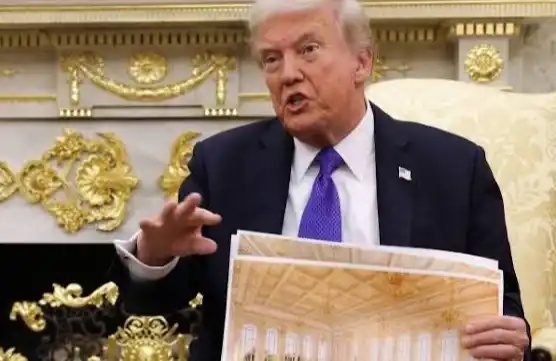Exploring the intersection of cryptocurrencies and Gaming: How to shake off the 'Web2.5 gaming' label?
原文标题:《 探索加密货币与游戏的交叉点:如何摆脱「Web2.5 游戏」的标签? 》
原文作者:Asa Li,Maverick Crypto 研究员
Deep Tide TechFlow
This article discusses the future prospects and challenges of crypto gaming. While many see Crypto gaming as a natural application of blockchain technology, Maverick Crypto researcher Asa Li In the current technology and market conditions, crypto games still need to overcome some important obstacles to achieve true commercial success. This article covers some of the key issues and suggests ways to explore how encryption can be applied to games.
introduce
Today, in terms of the money raised, the eyes gathered, and the expectations aroused, the dominant cryptocurrency meta-game is often a variation on the "Web 2.5 game," with the following characteristics:
Web 2.5 Token化:许多项目和投资者专注于将 Token 化和金融化添加到像 FPS、动作冒险、模拟、MOBA 和 MMORPG 这样的流行 Web 2 游戏类型中。
Web 2.5 Economy: A great deal of research has focused on how to make a hypothetical crypto economy work in a fictional, highly immersive MMO world.
Web 2.5 Gameplay: Many investment and engineering resources are working hard to develop artistic effects and gameplay to compete with today's Web 2 giants.
In this paper, we aim to:
1) Interact with the current popular Web 2.5 approach to gaming and ask questions,
2) Point out some interesting alternatives to the crypto-+ gaming intersection that we believe is currently underexplored.
Visualization of the search space
With the exception of Ethereum, gaming has been an important testing ground for new technologies. Collective thinking about how to make cryptocurrencies + games interact often takes one of two directions:
From Encryption to Gaming: Start with the core features of encryption (programmable value, trusted neutrality, etc.) and develop it into a fun experience. (e.g. games that are completely on the chain, encrypted DeFi, etc.)
From Gaming to encryption: Survey the realm of existing games and find where encryption is most likely to adapt and add value. (Examples include Ubisoft, Animoca's racing game, and many other crypto games currently in production)
我们 Maverick 略带偏见地倾向于第一种方法(因为它们与我们的加密原生和 Token 最大化哲学相一致)。但本文关注于第二种方法,我们对此感兴趣但并不是很熟悉,并且非常好奇向那些知道更多的人学习。
We visualized the game into the encrypted search space as follows:

Horizontal (game categories) : There are many game genres, each with its own domain expertise, target audience, gameplay, and in-game dynamics.
垂直(技术堆栈):一个成功和盈利的游戏产品需要大多数层次结合在一起: Token 经济、游戏玩法、GTM、运营、经济管理、生态系统和去中心化等等。一个薄弱的层次可能很容易摧毁整个体验。由于加密货币+游戏是如此新颖,还没有针对任何单一层的尝试和验证设计。找到单个单元的最优解(例如,如何营销支持加密的策略游戏)已经很难了。找到能够共同工作的垂直线(例如如何解决策略游戏的 7 个以上问题)则更是难了几个数量级。我们相信,在找到全栈解决方案之前,我们将看到更多的迭代、实验和试错。
Cells (count of successful attempts) : The number in each cell represents the number of relatively successful attempts that the encryption space has seen. Even if it ultimately fails, each successful game pushes the collective expertise of encryption forward and brings us one or two cells closer to final resolution. So far, The best known iterations have occurred in P2E (Axie Infinity and StepN), entirely on-chain (Dark Forrest and CryptoKitties), casino games (several old and new designs didn't win many DAUs), and strategy games (Dark Forrest).
Collective exploration: Crypto game builders build and iterate on their products so that we have more and higher numbers of green dots. As we accumulate collective expertise, talent, experience, best practices, and case studies, we are getting closer and closer in probability to creating the right crypto game.

In this search space, we find the Web 2.5 method in the yellow shaded area:
In terms of genre, Web 2.5 games focus on genres that have proven popular, such as massively multiplayer online games (Mmos), multiplayer online tactical games (MOBAs), and first-person shooters (FPS).
在技术堆栈上,Web 2.5 游戏传统上侧重于重塑游戏玩法和 Token 化。最新的对话开始围绕游戏内开放经济管理和持续运营探索更复杂的可能性。
We have a problem with Web 2.5 games
Question 1: Should you spend a lot of money on disrupting gameplay and art?
The challenges of gameplay and art in popular genres hinder the possible potential of iterative encryption + games.
Today, many crypto studios and investors are focused on reinventing the gameplay of popular genres like MMORPGs, FPSS, and MOBAs. While it makes sense to go after the largest potential market, these are often the areas where the product/market fit is least clear. Crypto startups often spend significant resources on gameplay development before players attempt risky but crucial crypto economy designs.
Historically, it has been extremely difficult to disrupt incumbents with data, distribution, and social barriers. There are several important reasons:
Data: For more than 10 years, data optimizers like Sensor Tower and Unity have accumulated endless data and analytics at the game level to fine-tune each player's retention, playtime, and propensity to pay. Building an economic model and game loop that matches 10 + years of experience in data optimization, both in terms of UIUX and profitability, is no easy task.
Art: According to Unity's CEO, there are three to five times as many artists as engineers in game companies. For popular games like Fortnite, Protogod, and Honor of Kings, Unity and Unreal will tailor their rendering engines to optimize performance.
Gameplay: Every new gameplay is subjected to rigorous A/B testing, and successful titles are rare for even the most successful studios. More than 95 percent of game titles lose money. For crypto start-ups, the climb will only get steeper.
In addition, focusing resources on gameplay and artistic effects means that fewer resources, attention, and product iterations are devoted to open economy design (more on that later). Instead, founders and foundations focus on hiring former studio product managers, artists and renderers to create the most eye-catching concept videos.

We believe that not all games need world-class art and gameplay to have a fighting chance at success. We believe that games exist on the spectrum from creative/gameplay heavy to economic/strategic heavy. Casino games, board games, strategy games, and strategy-focused RPGS often don't require an up-to-date graphics card. Instead, these games compete in distribution, operations, economics, game loop design, and so on. These categories will give a more natural feel in terms of cryptodynamic reinvention.
我们认为,Web 3 的有限资源最好用于探索加密经济如何解锁游戏中的新范式,而不是资助前 AAA 级制作人制作另一款 MOBA/FPS 游戏,只是加上了一些 Token 而已。为了进一步强调这一点,真正将 DeFi 推向其自身历史的章节的是其原生的可组合乐高,这些乐高允许人们进行游戏、迭代和最终重新对金融和杠杆进行构想。

So, let's move away from the discussion of gameplay and art and talk about how to design an internal open economy with cryptocurrency in the game.
Question 2: The benefits and challenges of designing an open economy
In an on-chain MMO economy, the potential benefits are huge, but so are the challenges.
This section was inspired by an extensive article by Aiko on how to design a sustainable in-game economy and tax-based revenue model.
In our opinion, Aiko's article represents the latest frontier in Web 2.5 game design: creating an internally sustainable economy where in-game transactions occur frequently so that creators can profit from an internal transaction tax. In this way, the incentive goals of players and operators are aligned: they both want a prosperous economy, higher GDP, and faster capital flows.

We have no doubt that the end goal is very exciting. Leveraging the promise of cryptocurrencies to increase in-game economic vitality by a factor of 10 to recreate a game like Original God or Fantasy Westward Journey is anyone's dream. But before the crypto MMO economy takes off from the ground up, we did identify a number of difficult prerequisites:
Necessary complexity: In order to have a sustainable economy, the game itself probably needs enough variety and complexity. In order to properly represent such game logic, we need to have many different fungible and irreplaceable assets across different levels and areas of expertise.
Aggregate trading liquidity: Given the complexity and volume of assets, markets need sufficient trading activity to have operational liquidity. This aggregate transaction activity can be interpreted as the average daily number of DAU x transactions. But is there a large enough player base to support transaction-centric, immersive Mmos?
Freedom and abuse: Freedom implies the potential for abuse and exploitation. Even in a game as simple as Dark Forrest, guilds can exhibit abuses that are detrimental to the experience of other players. The more complex the game, the greater the risk. How to regulate these abuses, or whether they should be centrally regulated, remains an open question.
Economic management and centralization: In a real economy, you have a central bank and a finance department that regulate economic activity in a fairly free way. In traditional games, huge operations teams work around the clock to balance the numbers. It is impossible to build a perfect economy, and it will not work perfectly forever. But central economic regulation naturally creates tensions with encryption's ownership commitment and trusted neutrality. Finding the delicate balance between playability and ownership predictability will be challenging.

We do not believe that these challenges are impossible to solve.
Instead, we believe that there may be many paths worth exploring in addressing each individual challenge. Each solution can be exciting, but they may require multiple iterations before they are ready for mass production.
Our question/suggestion is: given how difficult it is to solve all the challenges in a complex MMO, would it be better for a game studio to start with a smaller, simpler genre so that they can work their way through the different dimensions of the challenge? For example, we can start with a simple on-chain casino, simulation, or board game and explore one or two practical problems at a time. Here are the specific questions we'd like to see answered by product exploration (the list keeps growing) :
A paradigm for valuing and exchanging certain in-game assets without overly complicating UI/UX.
Evaluate and integrate best practices across the tangible and intangible assets of the game.
Best practices for opening up certain mod SDKS to the community and adjusting financial incentives.
Best practices for managing in-game economies through democratic, algorithmic, or technological means in response to internal and external cycles.
New funding to raise, distribute and purchase the original solution of the game.
Profile and differentiation solutions to address user abuse or bot behavior.

Question 3: Are asset-centric immersive games on the decline?
Most gamers today prefer fast food games to immersive game worlds and plots.
We've observed some clear trends in the gaming industry over the past 10-20 years:
Adjusted for inflation, only mobile games are growing, while PC games and consoles are losing market share.
Overall game and player engagement/engagement decreases. Average play time is getting shorter.
The phenomenon is easy to understand, driven by our collective shift to a more fragmented way of life. Our time is divided by long commutes, always-on notifications, and many competing forms of media and entertainment. The cozy basement game console may forever remain a fantasy of the past. It's the same trend that ultra-short forms of video like TikTok and Reels are taking over YouTube, Netflix and movie theaters in the entertainment war.
Take Tencent's MOBA, one of the highest-grossing mobile games of all time:
Tencent has been shortening the average game time of King of Glory, a MOBA game, from the original 25 minutes to the current 15-18 minutes, while introducing a faster paced game mode.
Tencent has been simplifying the game's non-race story, making the game more focused on the MOBA race itself, and downplaying the importance of accumulated assets such as levels, experience points, coins and collectibles.


We recognize that there is a small percentage of gamers who enjoy deeply immersive games. For these fans, games are like a second life, even more important than what others call "real life".
But if we look at the list of top mobile games today, the list is dominated by non-immersive fast-food games that feel like quick additions to the busy and mundane of modern life, rather than full-fledged substitutes.

迄今为止,我们看到的绝大多数 Token 化设计都会给游戏本身增加更多复杂性。这几乎就像在原始游戏之上玩一个超级游戏。这种方法留下了一些问题:
Games have specific categories that work for different demographics and situations, and trying to force strategy supergames into FPS/MOBA/ SLGS is unlikely to fit in naturally. Similarly, concepts such as assets, ownership, accumulation, and surreal game classes are not universal features.
游戏的额外 Token 化层很可能使游戏更加复杂和冗长,可能会让那些只想要快速娱乐体验的现代游戏玩家感到沮丧。
问题 4: 对沉浸式 MMO 游戏而言, Token 化的程度在哪?
Let's finally focus on a specific class of games: MMORPGs and MMoslGs. Many people see these two categories as the most natural links to traditional games.
The reason is pretty straightforward: they have concepts of identity, ownership, accumulation, growth, and P2P exchange inherent in gameplay. For example, the Club of Animals, Grand Theft Auto, Simcity, The SIMS, and Protogod. In theory, let's assume there is an MMORPG/SLG that is perfectly suited to cryptocurrencies. But we still have some unanswered questions:
"Escape and reality" : "Escape" is the first word in the promotion of Nintendo's 2020 hit game, Gather! Animal Friends. Part of the game's appeal is that players are transported into a relaxed and predictable parallel universe. The typical player of an MMORPG is more risk averse and level-headed than the typical trader who indulges in monetized commodities and securities. We're not sure if the promise of interoperability, connectivity, and global mobility is something gamers want to have on their Nintendo Island.

Definancialization may be a feature of Mmos. A successful MMO must have people from all walks of life. The opportunity cost of time invested in a game is different for different players. I'm happy to spend an hour of leisure time waiting for SimCity Trade HQ to refresh every 30 seconds in search of rare items. But once I realized that there was a price tag on my effort and time investment that was likely far less than my hourly opportunity cost of trading cryptocurrencies, the emotional value of the game suddenly lost its commoditization and financialization.
While we can't cover every possible MMO in detail, there are some exceptions. One exception in my mind is NetEase's Fantasy Westward Journey, an MMORPG where almost everything can be traded. The game has been around for eight years and has grossed over $4 billion (and counting). If there's any game that could be a crypto MMO dream game, this is certainly one of them. There are many lessons to be learned from Fantasy Westward Journey, but the jury is still out as to whether it is an exception or a model, which we need to keep watching.
So where do we go from here?
Honestly, we don't know. We try to participate in this ongoing discussion by asking our honest questions, and we are willing to be persuaded to change our views.

Today, we feel that people are trying to recreate popular Web 2 genres with encryption. But we see a lot of difficulties to overcome, such as competing with Web 2 competitors, designing an open economy and attracting a wide enough audience for the economy to flourish.
On the other hand, we identified several currently under-explored areas of gaming that might be more conducive to meaningful encryption experiments:
Category: Crypto economic (and social) experimentation with "gaming" that does not require perfect art and playability as industry prerequisites. (Casinos, strategy, leisure, board games, sports, SIMS, etc., all on the chain)
Stack Layer: Even within these categories, we're more interested in projects that don't focus solely on gameplay, but broadly on how cryptocurrencies are reimagining other stages of the game life cycle.
We believe that the categories we have identified will face a number of challenges and difficulties, but we believe it is in the best interests of studios, investors, and the crypto industry as a whole to explore untapped areas and advance our collective expertise.
Original link
Welcome to join the official BlockBeats community:
Telegram Subscription Group: https://t.me/theblockbeats
Telegram Discussion Group: https://t.me/BlockBeats_App
Official Twitter Account: https://twitter.com/BlockBeatsAsia


 Forum
Forum Finance
Finance
 Specials
Specials
 On-chain Eco
On-chain Eco
 Entry
Entry
 Podcasts
Podcasts
 Activities
Activities
 OPRR
OPRR









